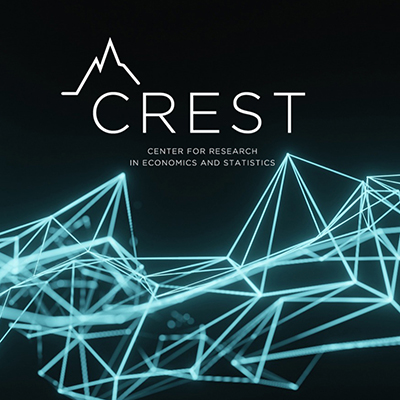À l’ère du streaming, quel avenir pour la musique francophone ? Analyse des défis d’algorithmes, de découvrabilité et de rémunération des artistes locaux, et perspectives pour renforcer sa visibilité avec Samuel Coavoux pour The Conversation.
Micro-travail et discriminations : quand la recherche éclaire le droit
Le 26 mai 2025, la Défenseure des droits a rendu une décision (n°2025-086) concernant les travailleurs et travailleuses de la plateforme de micro-travail française. Cette décision s’appuie largement sur les résultats d’un travail de recherche mené par Paola Tubaro (CNRS-CREST), Antonio Casilli (Télécom Paris) et Juana Torres-Cierpe (Inria), dans le cadre du programme DiPLab.
Lien vers la décision : Décision n°2025-086 – Défenseur des droits
Un travail collectif pour mieux comprendre et faire reconnaître les discriminations
Pendant plusieurs années, l’équipe de recherche a enquêté sur les conditions de travail dans le micro-travail : « Il s’agit de petites tâches effectuées en ligne, souvent rémunérées de manière minimale : classification d’images, transcription de textes, traduction […] principalement utilisées pour alimenter des algorithmes et des solutions d’intelligence artificielle ».
Leur rapport met en lumière des réalités peu visibles :
- Des conditions souvent précaires,
- Des travailleurs et travailleuses exposés à des formes de discrimination (par l’algorithme, par les clients, ou par la plateforme elle-même),
- Une majorité de femmes, souvent en situation de grande vulnérabilité économique et sociale.
Dans le cas étudié, les règles d’accès à la plateforme excluaient certains profils, notamment en fonction du pays de résidence, ce qui soulève des questions importantes au regard du droit.
Une recherche à fort impact sociétal
Cette affaire montre que la recherche peut avoir un véritable impact hors du monde académique. Grâce à ce travail rigoureux et engagé, la Défenseure des droits a pu prendre une décision fondée, qui servira à mieux encadrer les pratiques des plateformes numériques, et à protéger celles et ceux qui y travaillent.
C’est aussi une belle reconnaissance pour Paola Tubaro, Antonio Casilli et Juana Torres-Cierpe, qui prouvent une fois encore que les sciences sociales ont un rôle essentiel à jouer dans les débats contemporains.
Pour aller plus loin
Rapport complet : Discriminations et vulnérabilités dans les plateformes de micro-travail françaises
Projet DiPLab : diplab.eu
Paola Tubaro Sheds Light on the Invisible Workforce Behind AI at Buenos Aires’ “Nuit des Idées”
Paola Tubaro, CNRS Research Director at CREST, recently participated in the Nuit des Idées (Night of Ideas) held at the iconic Teatro Colón in Buenos Aires. This international event, organized by the Institut français d’Argentine and its partners, brings together thinkers, artists, and researchers to engage in public discussions on contemporary challenges.
During the event, Tubaro spoke about the often-overlooked human labor behind artificial intelligence systems. She emphasized the critical role of micro-workers who perform essential tasks such as data labeling and content moderation, enabling AI technologies to function effectively. Tubaro highlighted the precarious conditions these workers often face, including low wages, invisibility, and a lack of rights or recognition.
In a follow-up interview with Clarín, one of Argentina’s leading newspapers, she delved deeper into the topic. She described these workers as “neo-laborers of the algorithm,” performing countless “microtasks” for platforms like Amazon Mechanical Turk—often during their free time, with few protections and little public awareness of their role. Tubaro called for greater transparency, fairer conditions, and the ethical recognition of their contribution to technological progress.
Her reflections contribute to a broader understanding of the social and economic infrastructures behind AI systems, urging policymakers and the public to account for the real human costs behind digital automation.
Faut-il travailler avec ou contre l’IA ?
Paola Tubaro participe à l’émission Parlons-en de la chaîne France24 sur la thématique “Doit-on travailler avec ou contre l’intelligence artificielle ?” avec Jean Cattan, secrétaire général du Conseil national du numérique, Yann Lechelle, co-fondateur et directeur général de Probabl, spinoff d’Inria spécialisée dans les outils d’IA et de science de données pour les entreprises, et Caroline Fredrickson, Directrice du département de la recherche à l’OIT.
01/05/2025
La part du genre dans les sciences sociales
Dans une étude à paraître dans la revue Actes de la recherche en sciences sociales et chroniquée ce jour dans le journal Le Monde : “Il n’y a pas d’obsession pour le genre dans les sciences sociales en France : une vaste étude le démontre“, Samuel Coavoux, Etienne Ollion et plusieurs collègues ont étudié la place donnée au genre dans les sciences sociales.
La question a un intérêt scientifique évident. Elle permet aussi de revisiter certains débats publics récents — par exemple sur la place du “wokisme” à l’université.
L’enquête est inédite dans son ampleur : les auteurs ont analysé l’ensemble des publications de sciences sociales françaises depuis 25 ans.
L’enquête est innovante aussi, elle utilise des outils récents d’intelligence artificielle, développés au sein de l’équipe de sciences sociales computationnelles du CREST.
Les résultats sont parlants, et parfois inattendus :
- Le recours au genre comme grille d’analyse a augmenté au cours des 25 dernières années,
- Certaines disciplines ont été pionnières (démographie, anthropologie, histoire, sociologie), d’autres s’y sont intéressées plus récemment (histoire, sciences de gestion)
- Mais la mobilisation du genre est in fine limitée. Avec 12% du total des articles qui évoquent le genre, on est loin de l’invasion dénoncée par certains.
- L’approche de genre est encore très majoritairement le fait de femme. Entre 2016 et 2022, 66 % des articles mobilisant cette perspective ont été écrits par des femmes ou une majorité de femmes, une proportion stable dans le temps. L’augmentation du genre dans les publications pourrait bien être la conséquence de la féminisation des disciplines.
L’étude, la première au monde à analyser le genre dans les publications avec des outils d’intelligence artificielle, est disponible ici
La presse en parle :
Beyond the PhD – CREST Series #3: Insights from PhD Supervisors
At CREST, we aim to showcase the diverse career trajectories and perspectives of researchers who have navigated the path beyond their PhD. The “Beyond the PhD” series provides an opportunity to hear directly from experts across different fields about their experiences, challenges, and insights on life as a researcher.
For this third installment, we are featuring four distinguished researchers: Benoit Schmutz (Ecole polytechnique, IP Paris), Caroline Hillairet (GENES, ENSAE Paris, IP Paris), Paola Tubaro (CNRS, ENSAE Paris, IP Paris), and Nicolas Chopin (GENES, ENSAE Paris, IP Paris). Each of them shares their thoughts on the PhD journey, its impact on their careers, and the broader role of research in society.
Why pursue a PhD at CREST?
A PhD is much more than just academic training—it’s about developing a mindset that allows you to explore complex questions, think critically, and push the boundaries of knowledge. Our researchers highlight three key aspects that define the PhD experience at CREST:
🔹 An Environment for Intellectual Growth – A PhD is a journey of constant learning. You will develop a structured way of thinking, gain expertise in your field, and learn how to navigate uncertainty in research.
🔹 Opportunities for Interdisciplinary Work – At CREST, you will interact with researchers across economics, sociology, finance, and statistics, allowing for a dynamic and stimulating research experience.
🔹 A Supportive and Collaborative Research Culture – While research can be challenging, you will not be alone. Engaging with peers, supervisors, and the broader academic community is essential, and at CREST, we value collaboration as much as independence.
Watch the introduction to this series below.
Meet the Researchers
Each researcher featured in this edition brings a unique perspective on the PhD experience and beyond.
Benoit Schmutz – From PhD to Applied Economics
Benoit discusses how a PhD equips students with essential analytical skills, particularly in understanding labor markets and urban economics. He emphasizes the importance of rigor and adaptability in research.
🎥 Watch Benoit’s insights
Caroline Hillairet – Mathematics, Finance, and Research Opportunities
Caroline shares her journey from mathematics to finance, highlighting how a PhD opens doors to interdisciplinary research and the application of theoretical models to real-world problems.
🎥 Watch Caroline’s insights
Paola Tubaro – Networks, Society, and the Role of Research
Paola discusses how her research in computational social sciences evolved, emphasizing the collaborative nature of research and the impact of digital transformations on society.
🎥 Watch Paola’s insights
Nicolas Chopin – The Art of Asking the Right Questions
Nicolas talks about the role of uncertainty in research, how a PhD teaches resilience, and the impact of Bayesian statistics in various domains, including machine learning.
🎥 Watch Nicolas’s insights
Advice for Future PhD Students
If you are considering applying for a PhD at CREST, here are a few key takeaways from our researchers:
✅ Stay curious – Research is about exploration, so embrace new ideas and unexpected results.
✅ Engage with the academic community – Attend conferences, collaborate with other researchers, and actively participate in lab activities.
✅ Be patient and persistent – Progress in research takes time. Learning how to overcome obstacles is part of the PhD experience.
✅ Think beyond the thesis – Your PhD is not just about writing a dissertation; it’s about developing a way of thinking that will shape your career.
Check out our two previous series of Beyond the PhD on the CREST YouTube Channel:
Beyond the PhD – Series 1 – a video centered on the International Job Market from Economics PhD students.
Beyond the PhD – Series 2 – a series of videos from our PhD students on the definition of what is a PhD.
Samuel Coavoux pour le Petit Bulletin et le “hold-up” des musées lyonnais
Samuel Coavaux décrypte les enjeux de l’accès aux expositions et la manière dont certaines institutions culturelles transforment leur modèle. Entre stratégies de rentabilité et missions publiques, une réflexion passionnante sur l’avenir des musées.
03/02/2025
Etienne Ollion, sociologue : « La fin de l’interdiction du cumul des mandats serait le dernier clou dans le cercueil du “renouvellement de la vie politique” »
Interview d’Etienne Ollion pour le journal Le Monde
16/01/2025
2024 CREST Highlights
As 2024 draws to a close, CREST reflects on a year filled with groundbreaking research, prestigious awards, and impactful initiatives. Here’s a look back at our key achievements.
📊 Research Breakthroughs: 93 Articles Published
CREST published 93 articles so far, with 62% appearing in Q1 journals. These works reflect the breadth and depth of research conducted across CREST’s clusters. Here are some highlights:
Information Technology and Returns to Scale by Danial Lashkari, Arthur Bauer, and Jocely Boussard explores how technological advancements influence economies of scale, shedding light on contemporary production practices, in American Economic Review
Locus of Control and the Preference for Agency by Marco Caliendo, Deborah Cobb-Clark, Juliana Silva-Goncalves, and Arne Uhlendorff investigates how personal traits shape individuals’ economic decisions, providing a deeper understanding of agency in economic behavior, in European Economic Review.
Global Mobile Inventors by Dany Bahar, Prithwiraj Choudhury, Ernest Miguelez, and Sara Signorelli examines the migration patterns of innovative talent worldwide, offering new perspectives on innovation dynamics, in Journal of Development Economics.
Testing and Relaxing the Exclusion Restriction in the Control Function Approach by Xavier D’Haultfoeuille, Stefan Hordelein, and Yuya Sasaki provides advanced methodologies to enhance econometric analysis, in Journal of Econometrics.
Are Economists’ Preferences Psychologists’ Personality Traits? A Structural Approach by Tomas Jagelka bridges economics and psychology, exploring how personality traits influence economic preferences, in Journal of Political Economy.
Autoregressive Conditional Betas by Francisco Blasques, Christian Francq, and Sébastien Laurent provides innovative methods to measure financial risk, critical for investment strategies, in Journal of Econometrics.
Model-based vs. Agnostic Methods for the Prediction of Time-Varying Covariance Matrices by Jean-David Fermanian, Benjamin Poignard, and Panos Xidonas compares methodologies for improving financial predictions under uncertainty, in Annals of Operations Research.
Corporate Debt Value Under Transition Scenario Uncertainty by Theo Le Guedenal and Peter Tankov addresses the valuation of corporate debt amid environmental and regulatory changes, in Mathematical Finance.
Semiparametric Copula Models Applied to the Decomposition of Claim Amounts by Sébastien Farkas and Olivier Lopez develops new actuarial techniques to better understand insurance claims, in Scandinavian Actuarial Journal.
On the Chaotic Expansion for Counting Processes by Caroline Hillairet and Anthony Réveillac advances mathematical models with applications in finance and beyond, in Electronic Journal of Probability.
Russia’s Invasion of Ukraine and Perceived Intergenerational Mobility in Europe by Alexi Gugushvili and Patrick Präg examines how geopolitical shocks affect societal perceptions and mobility, in British Journal of Sociology.
The Total Effect of Social Origins on Educational Attainment: Meta-analysis of Sibling Correlations From 18 Countries by Lewis R. Anderson, Patrick Präg, Evelina T. Akimova, and Christiaan Monden provides a meta-analysis of sibling correlations, offering fresh insights into education and inequality, in Demography.
Context Matters When Evacuating Large Cities: Shifting the Focus from Individual Characteristics to Location and Social Vulnerability by Samuel Rufat, Emeline Comby, Serge Lhomme, and Victor Santoni shifts the focus from individual characteristics to social vulnerabilities during urban evacuations, in Environmental Science and Policy.
Gender Equality for Whom? The Changing College Education Gradients of the Division of Paid Work and Housework Among US Couples, 1968-2019 by Léa Pessin explores shifting dynamics in gendered divisions of labor among U.S. couples over the decades, in Social Forces.
The Augmented Social Scientist: Using Sequential Transfer Learning to Annotate Millions of Texts with Human-Level Accuracy by Salomé Do, Etienne Ollion, and Rubing Shen highlights how AI tools can assist in large-scale sociological research with human-level accuracy, in Sociological Methods and Research.
Investigating Swimming Technical Skills by a Double Partition Clustering of Multivariate Functional Data Allowing for Dimension Selection, by Antoine Bouvet, Salima El Kolei, Matthieu Marbac, in Annals of Applied Statistics.
Full-model estimation for non-parametric multivariate finite mixture models, by Marie Du Roy de Chaumaray, Matthieu Marbac, in Journal of the Royal Statistical Society. Series B: Statistical Methodology
Tail Inverse Regression: Dimension Reduction for Prediction of Extremes, by Anass Aghbalou, François Portier, Anne Sabourin, Chen Zhou, in Bernoulli.
Proxy-analysis of the genetics of cognitive decline in Parkinson’s disease through polygenic scores, by Johann Faouzi, Manuela Tan, Fanny Casse, Suzanne Lesage, Christelle Tesson, Alexis Brice, Graziella Mangone, Louise-Laure Mariani, Hirotaka Iwaki, Olivier Colliot, Lasse Pihlstrom, Jean-Christophe Corvol, in NPJ Parkinson’s Disease.
Benign Overfitting and Adaptive Nonparametric Regression, by Julien Chhor, Suzanne Sigalla, Alexandre Tsybakov, in Probability Theory and Related Fields.
🎯 Discover more CREST publications on our HAL webpage.
🌍 Impactful Events and Conferences
CREST actively participated in and hosted events that fostered collaboration and knowledge exchange:
- European Parliament Panel: Sociologist Paola Tubaro led a pivotal discussion on alternatives to platform-driven gig economies, bringing sociological insights to policy discussions.
- Publication by the National Courts of Audit: Barometer of Fiscal and Social Contributions in France – Second Edition 2023.
- NeurIPS 2024: CREST had a strong presence with 19 papers selected, showcasing cutting-edge work in artificial intelligence and neural information processing.
- Cyber-Risk Conference Cyr2fi: Co-organized with École Polytechnique, this event highlighted the interdisciplinary approaches needed to address growing cybersecurity threats.
- Nobel Prize Lecture: Researchers and PhDs of IP Paris Economics Department celebrated the 2023 Nobel Prize in Economics, reinforcing academic excellence.
📅 Join future events: Visit our calendar.
2024 brought two new chairs at CREST:
- Cyclomob by Marion Leroutier highlights research into sustainable urban mobility, funded through a regional chair.
- Impact Investing Chair by Olivier-David Zerbib to maximize the positive impact of the investment on the environment and society.
🏆 Awards and Recognitions
2024 was a year of accolades for CREST:
- 5 ERC Grants for CREST in 2024: Yves Le Yaouanq has recently joined the 2024 group of ERC grantees, which already includes Samuel Rufat, Olivier Gossner, Julien Combe, and Marion Goussé.
- CNRS Bronze Medal: Clément Malgouyres for contributions to labor economics.
- L’Oréal-UNESCO Young Talent: Solenne Gaucher recognized for her sustainable development work.
- EALE Young Labor Economist Prize: Federica Meluzzi for innovative labor market studies.
- 2024 AEJ Best Paper Awards in Macroeconomics: Giovanni Ricco wins the award for his paper “The transmission of Monetary Policy Shocks” with Silvia Miranda-Agrippino.
- Louis Bachelier Prize: Peter Tankov honored for achievements in mathematical finance.
In 2024, some CREST researchers were also appointed in diverse institutions:
- The Economic Journal: Roland Rathelot was appointed Managing Editor.
- The Econometric Society: Olivier Gossner was named Fellow of the Econometric Society.
- French Ministry of Economics: Franck Malherbet appointed as a member of the Expert Group on the Minimum Growth Wage.
📚 Books and Projects
This year, CREST researchers authored several impactful books:
- Ce qui échappe à l’intelligence artificielle, edited by François Levin and Étienne Ollion, critically examines the limits of AI in understanding human complexity.
- Peut-on être heureux de payer des impôts ? by Pierre Boyer engages readers in a thought-provoking discussion on the role of taxation in society.
- Introduction aux Sciences Économiques, cours de première année à l’Ecole polytechnique by Olivier Gossner et al. serves as an accessible entry point for students into economic principles.
- Une étrange victoire, l’extrême droite contre la politique by Michaël Foessel and Étienne Ollion explores the relationship between politics and far-right ideologies.
2024 was also marked by the second series of the Beyond the PhD series, a series of videos dedicated to the PhD course. In 2024, we were able to explore the evolution of the PhD definition through students currently in different years of their studies in all CREST research clusters.
📣 Media and Outreach
CREST researchers were featured in:
- 80+ media outlets, including Le Monde, Le Nouvel Obs, Les Échos, University World News, BBC News Brazil, France Culture, Libération, Le Cercles des Économistes, Médiapart, AOC…
- 30+ op-eds and articles, shaping public discourse.
🎙️ Featured Interview: Pauline Rossi discusses economic inequalities in Le Cercle des Économistes. Listen here.
CREST celebrates a year of remarkable achievements and meaningful contributions to research, society, and global conversations. From groundbreaking publications to prestigious awards and impactful events, our community has continued to push boundaries and inspire innovation.
Looking ahead to 2025, we remain committed to fostering interdisciplinary research, addressing societal challenges, and nurturing a collaborative environment for researchers and students.
2024 CREST Highlights
As 2024 draws to a close, CREST reflects on a year filled with groundbreaking research, prestigious awards, and impactful initiatives. Here’s a look back at our key achievements.
📊 Research Breakthroughs: 93 Articles Published
CREST published 93 articles so far, with 62% appearing in Q1 journals. These works reflect the breadth and depth of research conducted across CREST’s clusters. Here are some highlights:
Information Technology and Returns to Scale by Danial Lashkari, Arthur Bauer, and Jocely Boussard explores how technological advancements influence economies of scale, shedding light on contemporary production practices, in American Economic Review
Locus of Control and the Preference for Agency by Marco Caliendo, Deborah Cobb-Clark, Juliana Silva-Goncalves, and Arne Uhlendorff investigates how personal traits shape individuals’ economic decisions, providing a deeper understanding of agency in economic behavior, in European Economic Review.
Global Mobile Inventors by Dany Bahar, Prithwiraj Choudhury, Ernest Miguelez, and Sara Signorelli examines the migration patterns of innovative talent worldwide, offering new perspectives on innovation dynamics, in Journal of Development Economics.
Testing and Relaxing the Exclusion Restriction in the Control Function Approach by Xavier D’Haultfoeuille, Stefan Hordelein, and Yuya Sasaki provides advanced methodologies to enhance econometric analysis, in Journal of Econometrics.
Are Economists’ Preferences Psychologists’ Personality Traits? A Structural Approach by Tomas Jagelka bridges economics and psychology, exploring how personality traits influence economic preferences, in Journal of Political Economy.
Autoregressive Conditional Betas by Francisco Blasques, Christian Francq, and Sébastien Laurent provides innovative methods to measure financial risk, critical for investment strategies, in Journal of Econometrics.
Model-based vs. Agnostic Methods for the Prediction of Time-Varying Covariance Matrices by Jean-David Fermanian, Benjamin Poignard, and Panos Xidonas compares methodologies for improving financial predictions under uncertainty, in Annals of Operations Research.
Corporate Debt Value Under Transition Scenario Uncertainty by Theo Le Guedenal and Peter Tankov addresses the valuation of corporate debt amid environmental and regulatory changes, in Mathematical Finance.
Semiparametric Copula Models Applied to the Decomposition of Claim Amounts by Sébastien Farkas and Olivier Lopez develops new actuarial techniques to better understand insurance claims, in Scandinavian Actuarial Journal.
On the Chaotic Expansion for Counting Processes by Caroline Hillairet and Anthony Réveillac advances mathematical models with applications in finance and beyond, in Electronic Journal of Probability.
Russia’s Invasion of Ukraine and Perceived Intergenerational Mobility in Europe by Alexi Gugushvili and Patrick Präg examines how geopolitical shocks affect societal perceptions and mobility, in British Journal of Sociology.
The Total Effect of Social Origins on Educational Attainment: Meta-analysis of Sibling Correlations From 18 Countries by Lewis R. Anderson, Patrick Präg, Evelina T. Akimova, and Christiaan Monden provides a meta-analysis of sibling correlations, offering fresh insights into education and inequality, in Demography.
Context Matters When Evacuating Large Cities: Shifting the Focus from Individual Characteristics to Location and Social Vulnerability by Samuel Rufat, Emeline Comby, Serge Lhomme, and Victor Santoni shifts the focus from individual characteristics to social vulnerabilities during urban evacuations, in Environmental Science and Policy.
Gender Equality for Whom? The Changing College Education Gradients of the Division of Paid Work and Housework Among US Couples, 1968-2019 by Léa Pessin explores shifting dynamics in gendered divisions of labor among U.S. couples over the decades, in Social Forces.
The Augmented Social Scientist: Using Sequential Transfer Learning to Annotate Millions of Texts with Human-Level Accuracy by Salomé Do, Etienne Ollion, and Rubing Shen highlights how AI tools can assist in large-scale sociological research with human-level accuracy, in Sociological Methods and Research.
Investigating Swimming Technical Skills by a Double Partition Clustering of Multivariate Functional Data Allowing for Dimension Selection, by Antoine Bouvet, Salima El Kolei, Matthieu Marbac, in Annals of Applied Statistics.
Full-model estimation for non-parametric multivariate finite mixture models, by Marie Du Roy de Chaumaray, Matthieu Marbac, in Journal of the Royal Statistical Society. Series B: Statistical Methodology
Tail Inverse Regression: Dimension Reduction for Prediction of Extremes, by Anass Aghbalou, François Portier, Anne Sabourin, Chen Zhou, in Bernoulli.
Proxy-analysis of the genetics of cognitive decline in Parkinson’s disease through polygenic scores, by Johann Faouzi, Manuela Tan, Fanny Casse, Suzanne Lesage, Christelle Tesson, Alexis Brice, Graziella Mangone, Louise-Laure Mariani, Hirotaka Iwaki, Olivier Colliot, Lasse Pihlstrom, Jean-Christophe Corvol, in NPJ Parkinson’s Disease.
Benign Overfitting and Adaptive Nonparametric Regression, by Julien Chhor, Suzanne Sigalla, Alexandre Tsybakov, in Probability Theory and Related Fields.
🎯 Discover more CREST publications on our HAL webpage.
🌍 Impactful Events and Conferences
CREST actively participated in and hosted events that fostered collaboration and knowledge exchange:
- European Parliament Panel: Sociologist Paola Tubaro led a pivotal discussion on alternatives to platform-driven gig economies, bringing sociological insights to policy discussions.
- Publication by the National Courts of Audit: Barometer of Fiscal and Social Contributions in France – Second Edition 2023.
- NeurIPS 2024: CREST had a strong presence with 19 papers selected, showcasing cutting-edge work in artificial intelligence and neural information processing.
- Cyber-Risk Conference Cyr2fi: Co-organized with École Polytechnique, this event highlighted the interdisciplinary approaches needed to address growing cybersecurity threats.
- Nobel Prize Lecture: Researchers and PhDs of IP Paris Economics Department celebrated the 2023 Nobel Prize in Economics, reinforcing academic excellence.
📅 Join future events: Visit our calendar.
2024 brought two new chairs at CREST:
- Cyclomob by Marion Leroutier highlights research into sustainable urban mobility, funded through a regional chair.
- Impact Investing Chair by Olivier-David Zerbib to maximize the positive impact of the investment on the environment and society.
🏆 Awards and Recognitions
2024 was a year of accolades for CREST:
- 5 ERC Grants for CREST in 2024: Yves Le Yaouanq has recently joined the 2024 group of ERC grantees, which already includes Samuel Rufat, Olivier Gossner, Julien Combe, and Marion Goussé.
- CNRS Bronze Medal: Clément Malgouyres for contributions to labor economics.
- L’Oréal-UNESCO Young Talent: Solenne Gaucher recognized for her sustainable development work.
- EALE Young Labor Economist Prize: Federica Meluzzi for innovative labor market studies.
- 2024 AEJ Best Paper Awards in Macroeconomics: Giovanni Ricco wins the award for his paper “The transmission of Monetary Policy Shocks” with Silvia Miranda-Agrippino.
- Louis Bachelier Prize: Peter Tankov honored for achievements in mathematical finance.
In 2024, some CREST researchers were also appointed in diverse institutions:
- The Economic Journal: Roland Rathelot was appointed Managing Editor.
- The Econometric Society: Olivier Gossner was named Fellow of the Econometric Society.
- French Ministry of Economics: Franck Malherbet appointed as a member of the Expert Group on the Minimum Growth Wage.
📚 Books and Projects
This year, CREST researchers authored several impactful books:
- Ce qui échappe à l’intelligence artificielle, edited by François Levin and Étienne Ollion, critically examines the limits of AI in understanding human complexity.
- Peut-on être heureux de payer des impôts ? by Pierre Boyer engages readers in a thought-provoking discussion on the role of taxation in society.
- Introduction aux Sciences Économiques, cours de première année à l’Ecole polytechnique by Olivier Gossner et al. serves as an accessible entry point for students into economic principles.
- Une étrange victoire, l’extrême droite contre la politique by Michaël Foessel and Étienne Ollion explores the relationship between politics and far-right ideologies.
2024 was also marked by the second series of the Beyond the PhD series, a series of videos dedicated to the PhD course. In 2024, we were able to explore the evolution of the PhD definition through students currently in different years of their studies in all CREST research clusters.
📣 Media and Outreach
CREST researchers were featured in:
- 80+ media outlets, including Le Monde, Le Nouvel Obs, Les Échos, University World News, BBC News Brazil, France Culture, Libération, Le Cercles des Économistes, Médiapart, AOC…
- 30+ op-eds and articles, shaping public discourse.
🎙️ Featured Interview: Pauline Rossi discusses economic inequalities in Le Cercle des Économistes. Listen here.
CREST celebrates a year of remarkable achievements and meaningful contributions to research, society, and global conversations. From groundbreaking publications to prestigious awards and impactful events, our community has continued to push boundaries and inspire innovation.
Looking ahead to 2025, we remain committed to fostering interdisciplinary research, addressing societal challenges, and nurturing a collaborative environment for researchers and students.










